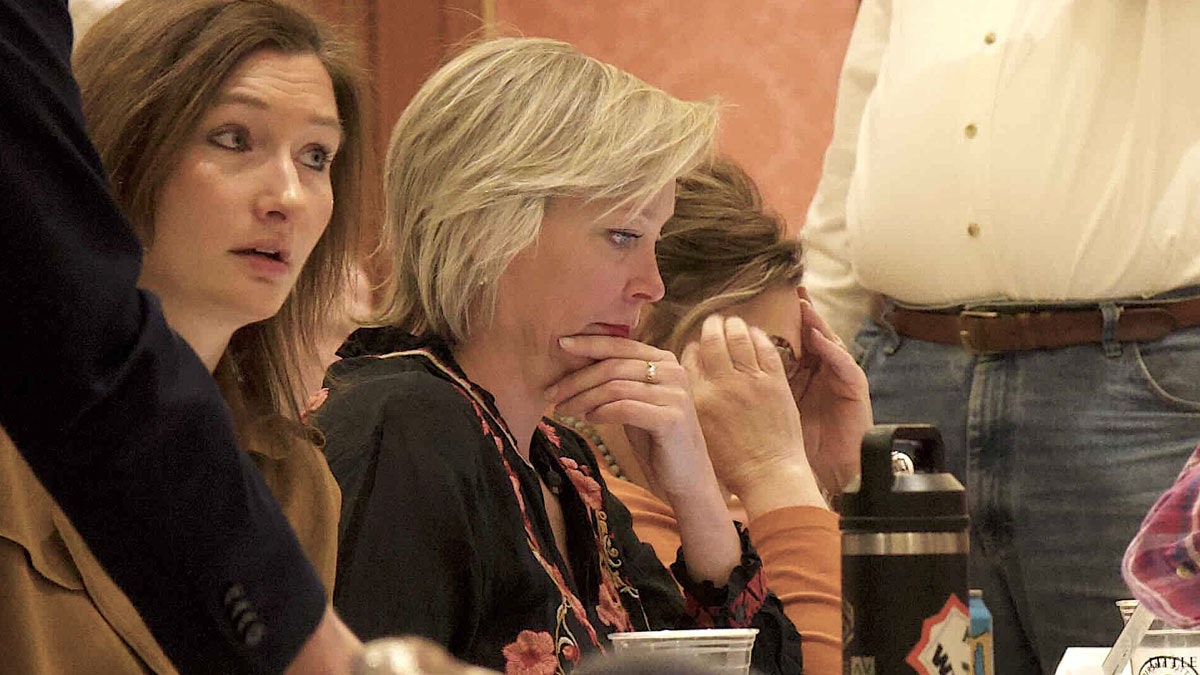A bill to eliminate Wyoming’s gun-free zones easily passed its third and final reading in the state’s Senate on Thursday, advancing to Gov. Mark Gordon’s desk, where only a veto can stop it from becoming law.
If Gordon signs it or simply lets it pass into law, people with concealed carry permits can take concealed firearms into numerous places where they’re now forbidden.
Some of those places include public schools, community colleges and the University of Wyoming campus, the Wyoming Capitol building and county-run public hospitals.
Local Decision, Or Second Amendment?
Senators supporting and opposed to the bill made strong statements before the final vote, which was 28-8. It boiled down to a question of local control and people’s perception of safety verses the uniform application of Second Amendment rights. The latter view strongly prevailed.
In the final statement made before the vote was taken, Sen. Cheri Steinmetz, R-Lingle, argued that it’s within the Legislature’s scope of responsibility to apply general laws that might trump local or county ordinances.
And because HB 125 involves the Second Amendment, it’s appropriate for the Legislature to apply a uniform, top-down ruling, rather than let local governing bodies decide firearms policy, she said.
Fear Factor
Wyoming has a longstanding policy of allowing some local entities to decide firearms policy, and that matches with courts’ rulings upholding “time, place and manner” restrictions on carrying firearms, said Sen. Chris Rothfuss, D-Laramie.
Some local governing bodies, such as school districts, city councils and county commissions, have always had the option of allowing people to carry concealed firearms. But most have decided against it, Rothfuss argued.
And as the governing bodies closest to the people, they best reflect the will of Wyoming residents, he said.
Rothfuss also argued that a greater number of people in Wyoming probably don’t like the idea of allowing firearms in places where they’re now forbidden.
“Because, while there are many, many folks in the state of Wyoming that feel safer when they’re carrying a gun, there are many more who feel less safe knowing that those individuals are nearby and carrying a gun,” he said. “Often untrained, unqualified, no certification necessary. If you’re old enough, you can carry a deadly weapon. And apparently, it’s a good idea to carry it anyway.”
Sen. Sen. Anthony Bouchard, R-Cheyenne, said the supposed fear of firearms is overplayed because carrying concealed firearms in Wyoming is already commonplace.
“We walk into stores every day, and there’s people around us carrying guns,” he said, sarcastically using a sinister whisper on “carrying guns.”
The scope of Second Amendment rights shouldn’t be decided by local governing bodies or officials, said Sen. Troy McKeown, R-Gillette.
“This is an interesting discussion. We’re going to give our constitution rights over to a government agency,” he said. “And if they’re going to deny our Second Amendment rights, what’s next? First Amendment, Fourth Amendment? This is guaranteed in the Constitution. This isn’t a menu of select. This is a ‘shall not be infringed.’
“And if we let school superintendents decide on this constitutional right, it won’t be long before they’re deciding on First Amendment rights.”
Nobody Should Know
Sen. Wendy Schuler, R-Evanston, opened the discussion by suggesting an amendment that would require people who intend to carry concealed firearms on school grounds notify the local superintendent of schools.
The amendment was rejected, even though she argued that it could help set people’s minds at ease about the implications of HB 125.
If a school shooting ever were to happen in Wyoming, it would be best that superintendents and local law enforcement agencies know who might be armed in a school – to avoid a possible tragic mistake if officers spotted somebody with a gun, she said.
“I just felt like, gosh, you could have innocent people caught in the crosshairs,” she said.
But Bouchard argued that such a requirement would be a breach of firearms owners’ privacy, and the information could end up becoming public.
Having people know that who is carrying concealed firearms undermines the purpose of carrying them in the first place, Bouchard said.
“If you’re concealed carrying and someone knows it, you’re not doing it right,” he said.
Let’s Consider What Happens
Sen. Bill Landen, R-Casper, said that he still had serious misgivings about the bill. He reiterated a story of being present during a campus shooting, which he shared during discussion late Monday before the Senate Judiciary Committee, which he chairs.
“I’m the only one in this room who has been through a campus shooting. It’s a horrific and life-changing thing. We to this day have members of that staff at that college in the center part of the state who have some post-traumatic issues related to that particular incident,” he said.
Landen said he didn’t think that him being armed in that situation would have made any difference because it happened so quickly.
“Is this a safety bill? I don’t know,” he said.
He said if HB 125 does become law and gun-free zones are eliminated, the effects on college campuses and other locations should be taken into account.
“We need to consider and watch this carefully,” he said.
Mark Heinz can be reached at mark@cowboystatedaily.com.





